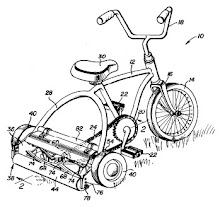
This week my Harvard Business School class ("Business Marketing") covered the topic of "what is your message when selling stuff?" In the model, there is one particular trap that I have fallen into, as may many of my SDM colleagues. Here is a short warning for those thinking of switching careers.
It seems like there's a truism in business literature that "if it can't be decomposed into a 2x2 matrix, it's not worth knowing." The latest bit of wisdom from Business Marketing concerns itself with how to sell a product based on its benefits. You have to consider your ability to deliver the benefit (low/high) as well as the importance of that benefit to the buyer (low/high). The strategy matrix looks like this:
| importance to customer | high | deflect | hook |
| low | ignore | resist! | |
| low | high | ||
| ability to provide | |||
If you do something well and the customer values it, lead with it. It's your hook. If you don't do something well and the customer doesn't care, ignore it and don't even talk about it. Who cares? If you don't do something well and the customer does care, you are in the realm of objection handling. Deflect and move on; there are dozens of books to help you do this with grace.
Career-switchers get trapped by the lower-right quadrant. We're looking to go into a new area and the bulk of our accomplishments are in a different area. It takes a tremendous amount of strength to resist and NOT play up areas of strength when the customer (a hiring manager) doesn't care. Imagine if someone wants to sell you a car and tells you how great it is at closed-course auto racing. Your thoughts are going to be "I don't want to do auto racing, why are you wasting my time?" and "Am I going to have to pay more for this?" In the best circumstance, the sales message might link that auto racing prowess to things you do care about such as acceleration or cornering. In the worst case, this quadrant will just bother or confuse the buyer.
Prior to SDM, my resume contained a lot of detail about software projects, languages, libraries, and skills. It's been painful to pare this away. I still see myself entering a world of managing software developers or at least working with them to develop specifications. Therefore, my software experience on the resume now focuses much more on leadership and real-world results. How many people did I manage? How did I develop and implement a product vision? None of the jobs I want will care whether or not I can finesse XML XSLT engines to output elegant SVG images, so that line had to go. Keep it relevant to the audience, and be careful what you're selling.
(On a personal note, removing OASIS DocBook skill may have hurt. That pain was nothing compared to removing "Eagle Scout, BSA" from the "awards" section. Darn you, relevance.)
(Image via Wenger, makers of knives both practical and... not.)


great post Karl. it seems to me your Eagle Scout badge is a milestone achievement in perseverance and leadership that does hold some relevance in the business world. this from biased former Scout, of course ;-)
ReplyDeleteSupremely useful. It's hard to imagine why someone wouldn't want more information over less (especially coming from a non-private-sector world). But "Am I going to have to pay more for this?" answers that. In the policy world, it might be a matter of using your audience's bandwidth wisely. It's not that they'll pay money, but they'll spend attention -- and that's worth more to the seller when advocacy is on the line.
ReplyDelete